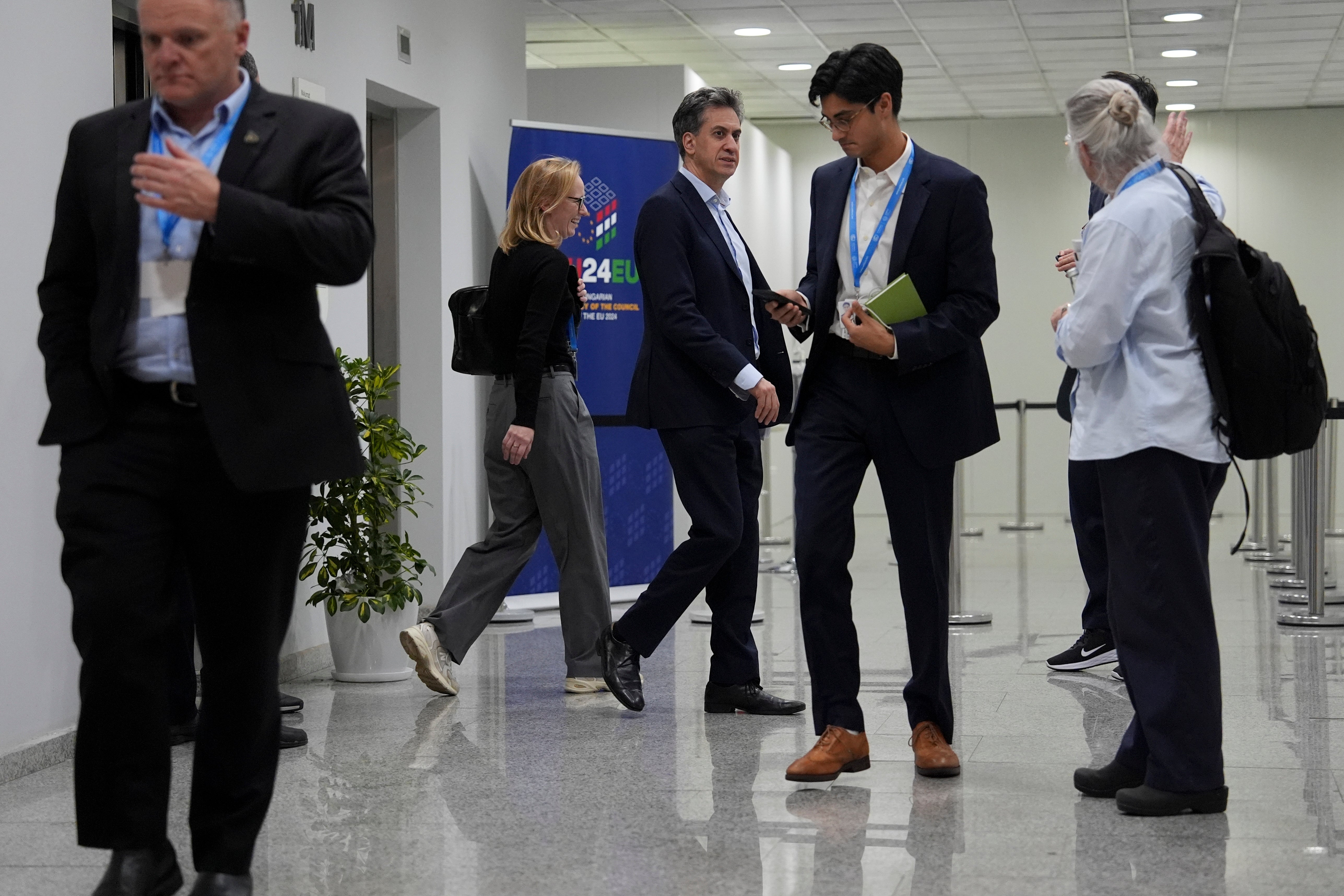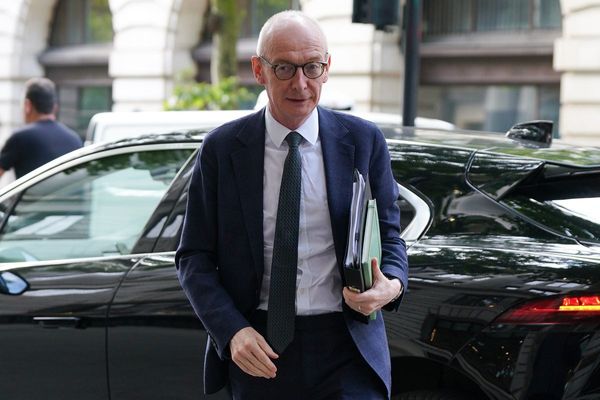
Countries have worked through the night to broker a deal on climate finance at the UN climate summit as negotiations stretched into overtime.
Patience is wearing thin on the ground at Cop29 in Azerbaijan as negotiations in the host city, Baku, hit a deadlock again on Saturday afternoon – almost 24 hours after the summit was scheduled to finish.
The Cop29 presidency scheduled a plenary hearing for 7pm local time on Saturday where countries will present their final views on a draft deal.

But behind the scenes, there was little sign of a breakthrough over how much rich countries should pay in public finance to poorer ones to help them cope with the impacts of global warming, or on how to cut climate-heating emissions.
As the talks became increasingly precarious on Saturday, contractors were already taking down the temporary buildings around the Olympic Stadium, which had hosted the nearly two-week summit.
Following days of deadlock, the host Azerbaijan presidency team released the latest draft for a global agreement on Friday afternoon, which indicated that governments were closing in on a compromise.
The text included long-awaited specific numbers on climate finance, which meant countries could finally begin wrangling over the details of a deal.
The core target put forward was 250 billion dollars in public money and a wider goal of 1.3 trillion dollars, including many types of finance, to be flowing into poorer countries each year by 2035.
COP29 | Blue Zone Day 12 Highlights#COP29 #COP29Azerbaijan pic.twitter.com/Xh2TtKHA9k
— COP29 Azerbaijan (@COP29_AZ) November 23, 2024
Economists say at least one trillion US dollars in all kinds of finance is needed for poor countries per year by 2030 to meet the 2015 Paris Agreement goals to limit dangerous global warming.
By Saturday afternoon a pact on carbon markets was all but agreed, with the new texts setting out rules for carbon trading between countries and the creation of a regulated global market to help meet international climate goals.
But negotiations on the thornier issues stalled once again, with parties fiercely arguing over a final finance figure and whether to double down on last year’s pledge to transition away from fossil fuels.
The current proposals face heavy criticism from developing economies, which have been seeking an overarching target of 1.3 trillion dollars a year from 2025 to 2035 and a much higher commitment within that for public finance.
On the just transition work program, which aims to support poorer countries move to a greener future while decreasing inequalities, German climate envoy Jennifer Morgan said: “The EU, along with the most vulnerable countries, small island states, the least developed countries as well as countries from Latin America and all other developed countries have clearly stated that the current text is unacceptable.
“We do not understand why the presidency is tabling a text in the end game that does not even attempt to balance interests.”

The talks have also seen parties arguing over who should contribute to climate finance, with developed countries arguing that some high-emitting developing nations, such as the Gulf states and China, should also be made to pay.
Reaffirming and building on the Cop28 pledge to transition away from fossil fuels has been another key sticking point during the summit, with significant pushback coming from some oil-rich countries like Saudi Arabia.
Greta Thunberg, one of the world’s most famous climate activists, described Cop29 as “failing” and called the latest draft a “complete disaster”.
“The people in power are yet again about to agree to a death sentence to the countless people whose lives have been or will be ruined by the climate crisis,” she said.
“The current text is full of false solutions and empty promises. The money from the Global North countries needed to pay back their climate debt is still nowhere to be seen.”
Reflections on #COP29:
— Ed Miliband (@Ed_Miliband) November 21, 2024
1️⃣ The energy transition is here.
2️⃣ The climate crisis is real.
3️⃣ Tackling both will be hard.
4️⃣ The fight is on.#UKatCOP29 pic.twitter.com/11kzFJ9PwM
Speaking ahead of the publication of the draft texts on Friday, UK Energy Secretary Ed Miliband said the country wants to see an agreement that “accelerates the clean energy transition”
He compared the “torturous” negotiations to playing “198-dimensional chess”, but remained optimistic that a good deal would be brokered.
In a joint statement, UN-appointed advisors Amar Bhattacharya, Vera Songwe, and Nicholas Stern said the proposed 1.3-trillion-dollar-a-year target was in line their analysis of what was needed to meet the goals of the Paris Agreement.
But they added that the sub-goal of 250 billion a year in public finance by 2035 was “too low and not consistent with delivery of the Paris Agreement”.
Green groups responded angrily to the proposed climate finance package, with Jasper Inventor, head of the Greenpeace Delegation, calling it “inadequate” and “divorced from the reality of climate impacts and outrageously below the needs of developing countries”.
Stephen Cornelius, WWF deputy global climate and energy lead, said there will likely be “fireworks” during the late-stage negotiations.
“While the text accurately recognises the climate finance needs of developing countries, the public finance commitment and timeline don’t come close to meeting them,” he said.







